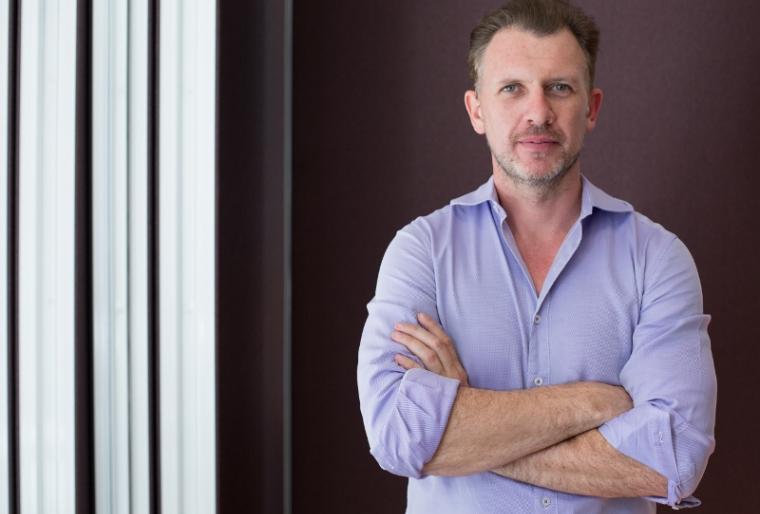To an industry reliant on cross-border flows of technical skills and creative expertise, Opposition Leader Bill Shorten’s populist new war on 457 visas should be viewed with concern.
Any tightening of skills policy that puts a squeeze on the availability of international talent will do harm to an industry that is only now building its own momentum.
This would be the case anywhere in the world, but it is especially true in a country like Australia, which is not producing enough graduates in key technical areas to meet market demand.

Reducing the flow of ‘talent’ – as defined by skills, ideas and creativity – would have the same effect in Australia as reducing the flow of capital. It would hurt.
Proportionally, Australia’s tech sector is the most reliant on the 457 visa temporary skills visa. More than 15 per cent of all visas granted under the program are classified in the ‘Information Media and Telecommunications’ industry.
The industry’s reliance on these professionals is set to grow. It is no surprise that local tech leaders are alarmed.
For many in the sector, this is precisely the opposite message that Australia should be sending to the world right now. And it is the antithesis of Labor’s historical record as a party of open markets (and runs against the grain of the free market rhetoric of its senior leadership, from Chris Bowen to Penny Wong.)
A receding tide lowers all boats. And in tone at least, the debate about temporary skills visas is all of a sudden getting lower.
Bill Shorten’s push to tighten 457 visa numbers comes as some in the industry have suggested boosting the in-flow of tech and entrepreneurial talent by targeting Australian expatriates and disaffected entrepreneurs and engineers in technology hotspots in the US in the wake of Trumpism.
In fact, Victoria’s Labor Innovation Minister Philip Dalidakis has already been using social media to reach out to post-election Americans, promoting Melbourne as a “relaxed, embracing and diverse ecosystem (where trump is a term used in a card game & not at the end of the words president-elect!)”
He’s not joking.
The cofounder and CEO of lobby group TechSydney Dean McEvoy says the 457 visa program is an important source of renewal for Australian expertise. It is also a critical pathway to permanent residency, meaning these skills are retained.
“In technology, it is absolutely essential that we can bring in the best-in-class in the world to refresh our knowledge and to keep us sharp,” Mr McEvoy said.
“The lessons that I learned to grow my first company we kind of redundant when I came to build my second company 18 months later. In that fast-changing kind of environment, you really need to be bringing in the best in class in the world.”
Mr McEvoy says it is critical that policy-makers distinguish between categories of expertise, and the industries in which those skills are being taken up.
On targeting potential skilled migrants from US – temporary or permanent – he says Australia should be thinking about the way it brands itself anyway, and this is as good a time as any.
Australia has the assets of weather, beaches and lifestyle – and generally stable, coherent government – that are an important part of our potential attractiveness. And we should be exploiting those assets in our campaigns to attract the world’s best to our shores.
“There is a lot of interest right now in Sydney and Australia as a technology ecosystem,” Mr McEvoy said. There are venture capital firms looking to invest and set up here. There are entrepreneurs who are looking to make [Australia] their base for Asia.”
“A smart person would be looking at Australia not just for the Trump reasons, but for the compelling economic reasons,” he said.
“It is important that people don’t just see us as a “throw another shrimp on the barbie” market, but rather that they see us for what we deliver – which is some highly innovative and valuable companies.”
Australia had an earned reputation for building highly successful companies on comparatively small amount of venture capital. Companies like Atlassian, Big Commerce, Campaign Monitor and Red Bubble have thrived despite meagre VC funding
That is an attractive trait to both venture investors and to entrepreneurs – and it should be considered a national selling point, Mr McEvoy said.
“That DNA carries through the entrepreneur ecosystem here. We don’t have that sense of entitlement that says we need a million dollars to put out an MVP. That gives us a bit of an edge when it comes to return on investment, and that’s interesting to people [overseas].”
Merely appealing to those disaffected by the election of Donald Trump “would be under-selling what the opportunity is. There is a bigger and more rational argument that should be about telling the story of Brand Australia.”
Do you know more? Contact James Riley via Email.

